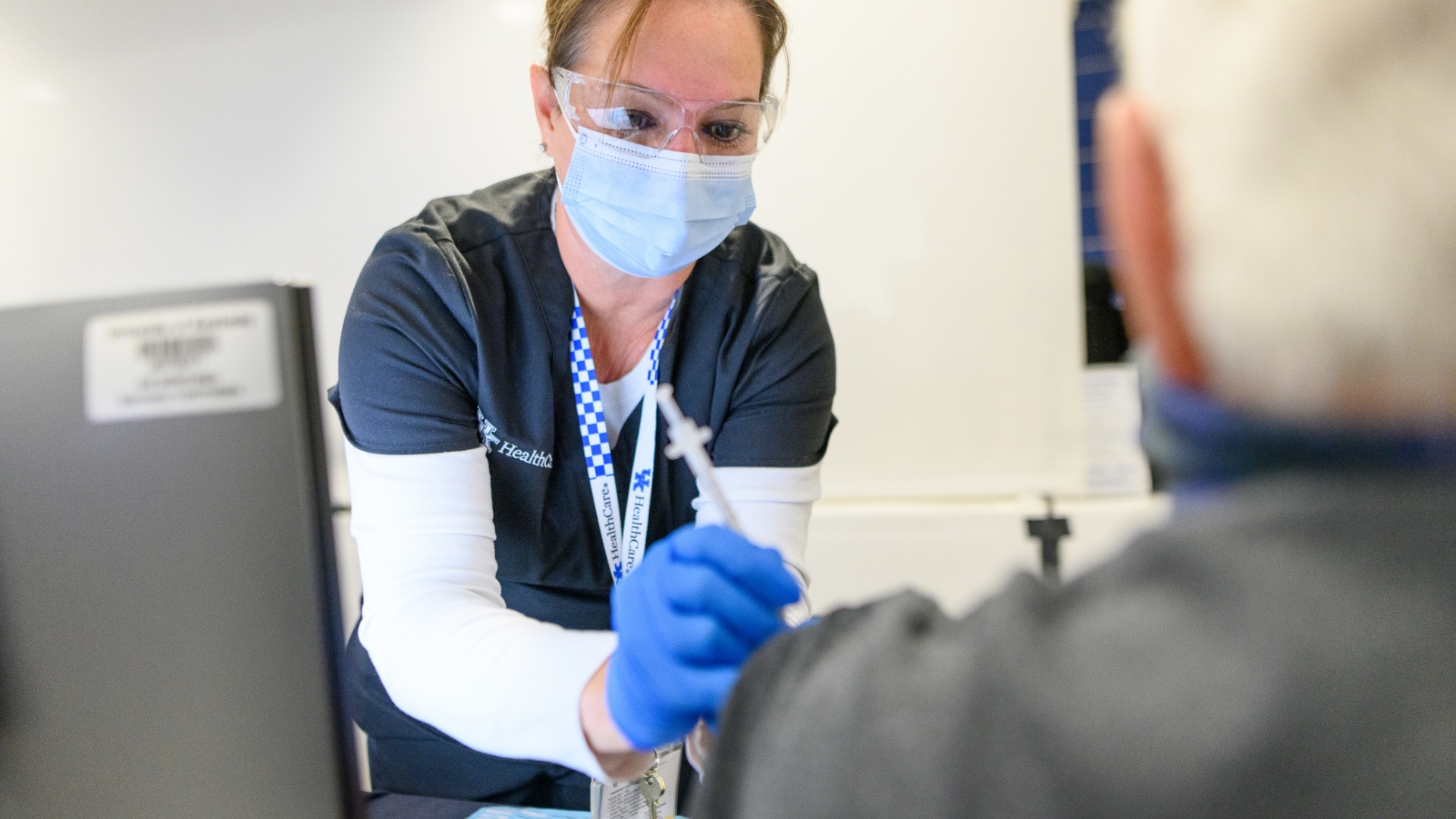
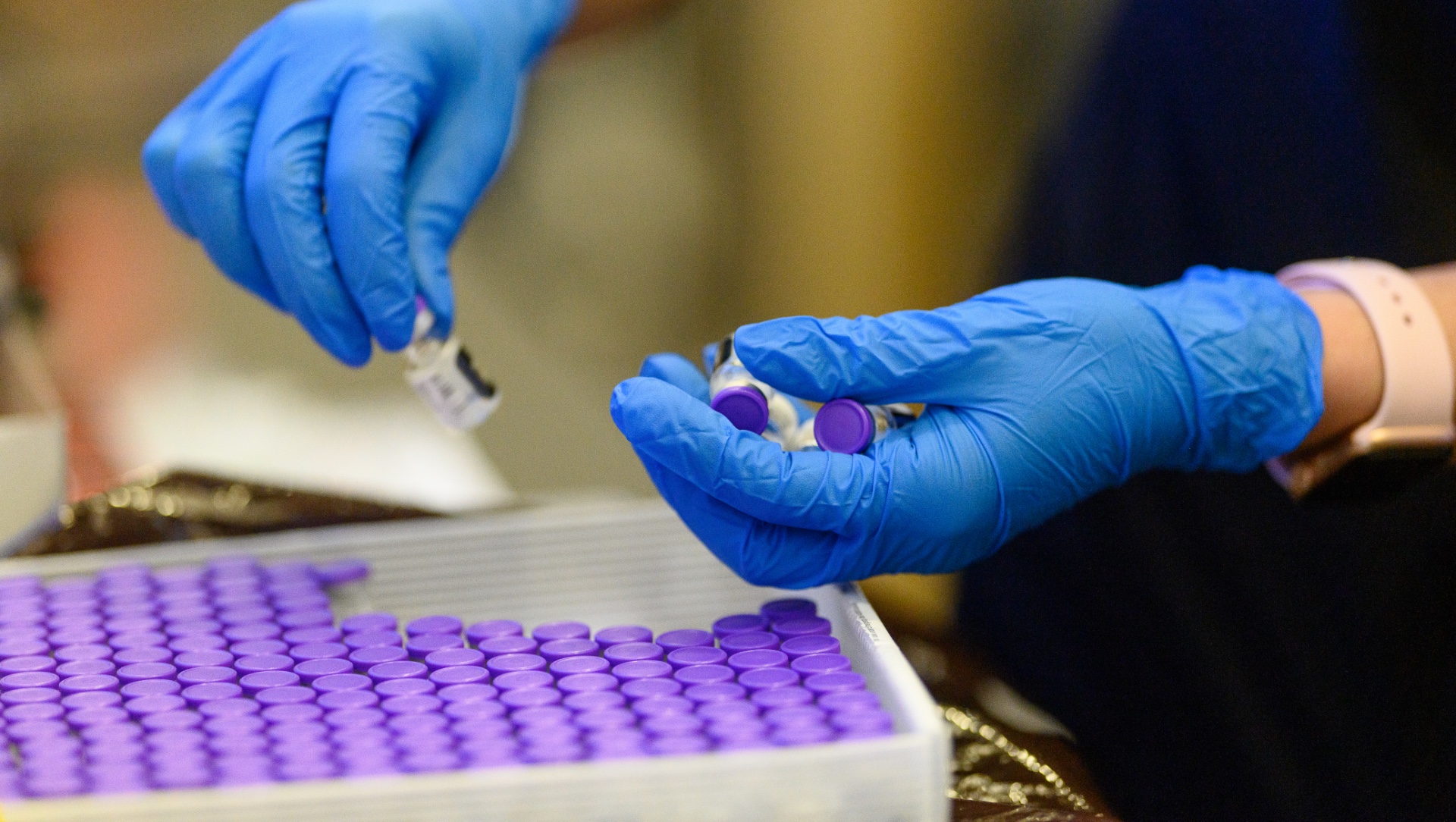
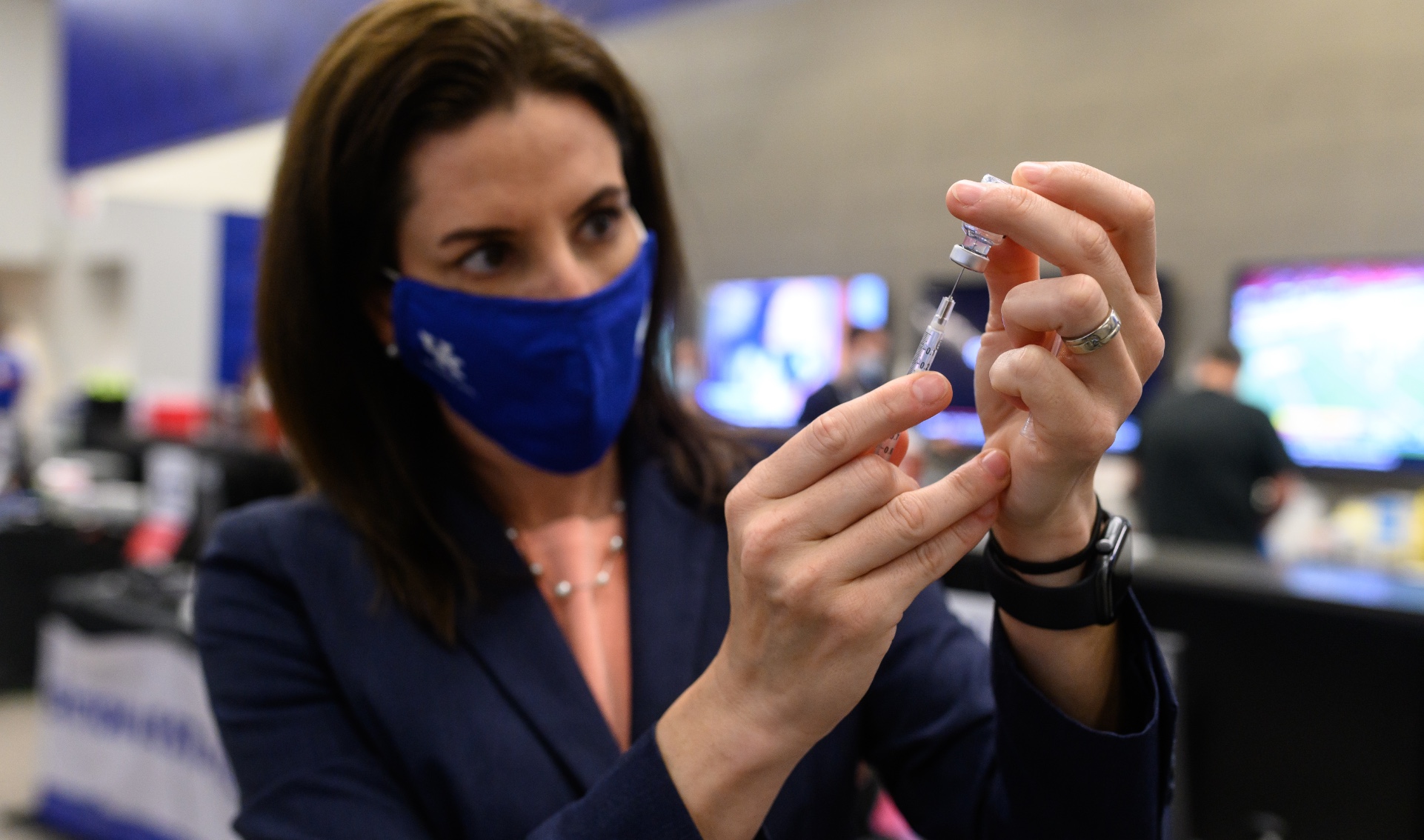
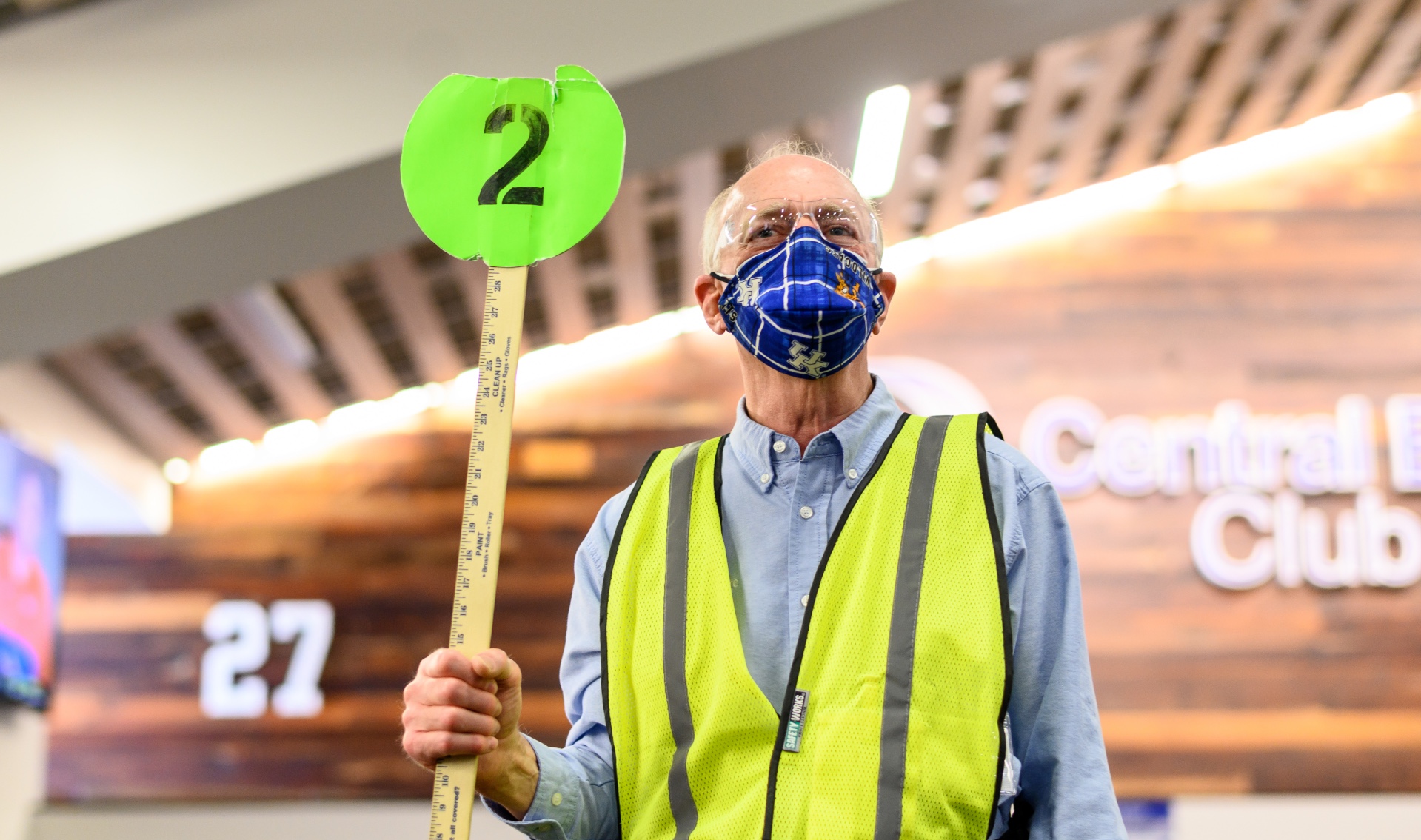
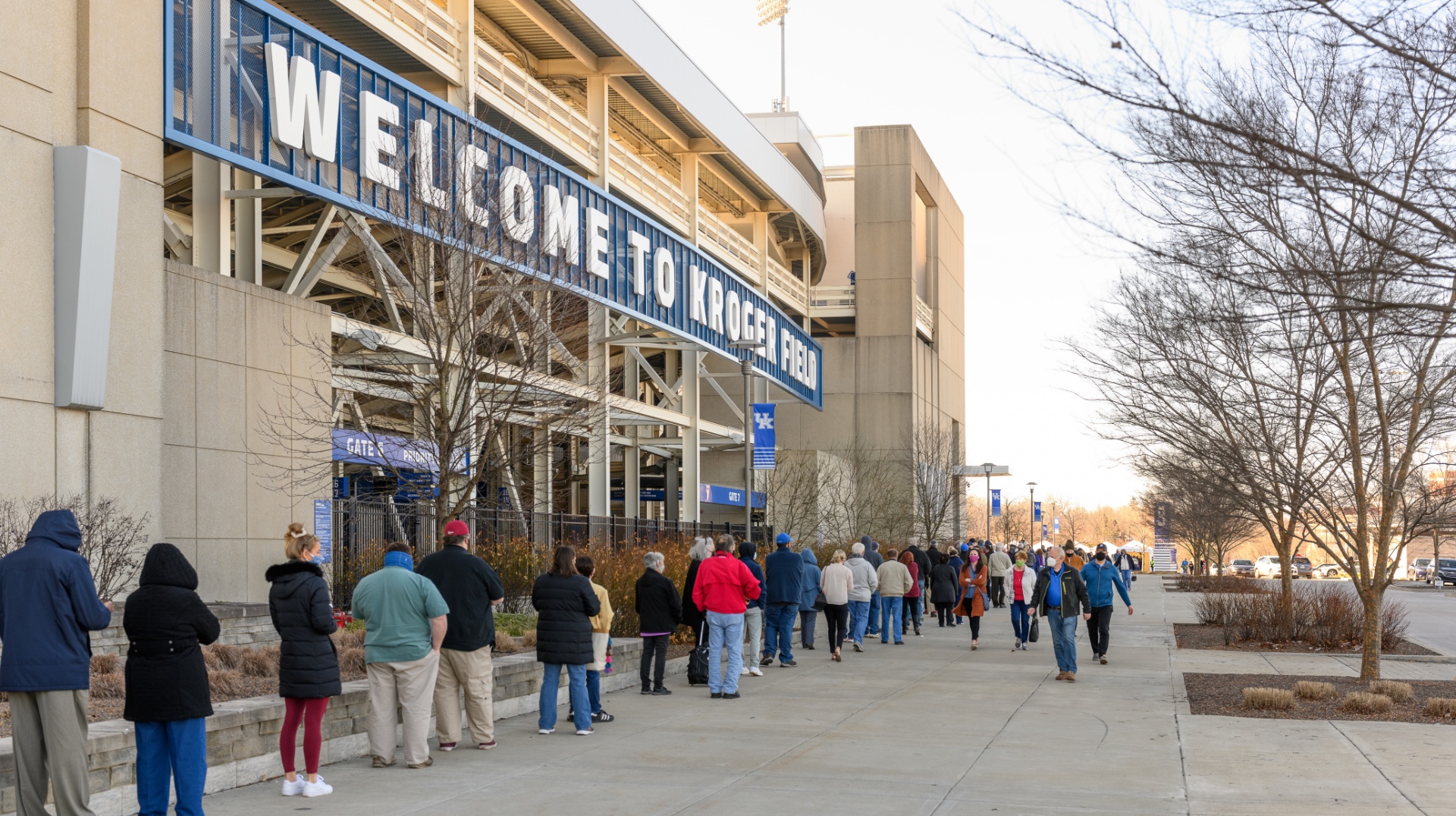

“It's been amazing to be a part of the impossible.”
A quarter million vaccines. Over 1,500 clinicians and pharmacists. 4,200 volunteers. All in just under four months. This is what it took to vaccinate Lexington during the greatest public health crisis of modern history.
“I don't think any of us in health care believed it was coming as fast as it did. Up until we got the confirmation, I was like, ‘There's no way this is going to happen by the end of the year. It's going to be next spring before this happens. There's just no way.’ Once the Pfizer data was released, everybody was like, ‘Oh, this may actually happen.’ Then once we looked at the data, it was, ‘This really works. This is amazing.’”
That's how Dr. Ashley Montgomery-Yates, a physician at UK HealthCare's Division of Pulmonary Critical Care, reacted to news of a safe, effective, and soon-to-be available COVID-19 vaccine. The next step for the team at UK HealthCare: figure out how to efficiently and fairly distribute those vaccines to essential workers and the larger community.
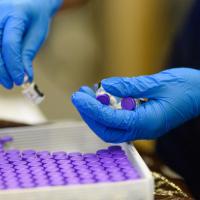
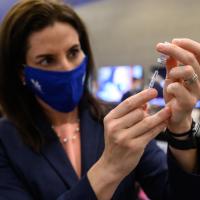
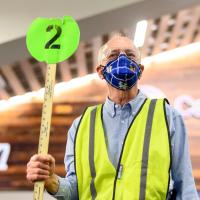
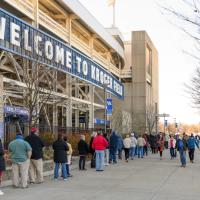
“We started meeting weekly and sharing information. The next thing we knew, we were getting the drug,” said Dr. Philip Almeter, Chief Pharmacist at UK HealthCare. “We worked closely with IT because one thing we wanted from the beginning was to make this efficient. We wanted no paper. So we built this really cool system for UK HealthCare employees. We worked with this process where you had it in the freezer, and then you thawed it in the fridge but it's only good for so long, so you had to get it in an arm.”
Dr. Almeter worked alongside Dr. Montgomery-Yates and a larger team to organize a vaccination system for UK HealthCare employees. This system laid the groundwork for an unprecedented effort at Kroger Field, which later successfully vaccinated hundreds of thousands of Kentuckians. The Kroger Field vaccine clinic opened on January 19th, and began administering doses to eager and eligible patients.

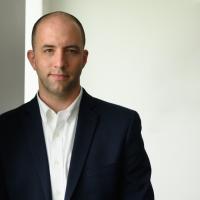
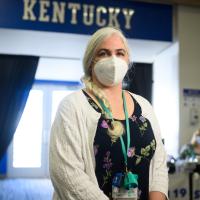
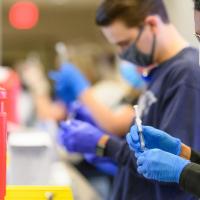
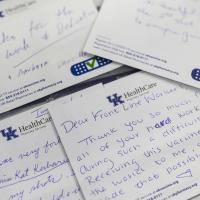
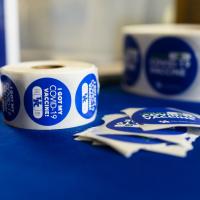
“It was just a lot of manpower,” said Dr. Almeter. “If you were in Kroger Field those first two weeks, the people there were people who were being pulled from their full-time jobs, and they were just in there non-stop. I think after the first two weeks, the adrenaline started wearing off. Then we started thinking, ‘How are we going to get volunteers in here?’”
Volunteers became the backbone of the vaccine clinic. It took this dedicated group of 4,200 people to keep the patient experience running smoothly, from initial registration, to scheduling and administering their first and second shots.
“We had UK HealthCare and campus IT working with us to develop and build this program,” said Karla Bertagnole, Programmatic Manager for UK HealthCare’s Retail Pharmacy Services and volunteer organizer at Kroger Field, who was instrumental in streamlining the registration process at Kroger Field. “Doing it with UK HealthCare employees is one thing, but when you open it up to the public you have to change your whole system, so we grew with it. We tweaked it as we went along and made it ours, developed it. It took a lot of hours. There's a lot of us that have worked many, many hours on top of our full-time jobs. The volunteers that we have are incredible. It's definitely taken a village to get this done.”
“It's been an incredible experience working with all the shared staff,” said volunteer and retired scientist Bob Evans. “Believe me, I've considered myself small in the entire machine, and I'm there just to make the rest of the machine work.”
There were no small parts, however. It took teamwork, commitment, and each person’s contributions to keep the massive operation running smoothly.
“If you don't have every single one of those people committed and really focused on the end goal, none of this could have happened,” said Dr. Montgomery-Yates. “ We just do what we have to to get it done—and it really worked because we depended and trusted each other immensely, and everybody just did what they needed to do to get it done.”
UK HealthCare’s Kroger Field vaccine clinic was a community of people coming together to lift each other up. After a brutal year of unknowns and losses, it was an opportunity for people to regain control of their lives, and to restore hope in the lives of others.
At its height, the clinicians and volunteers at Kroger Field were vaccinating 4,000 people a day. In less than four months, the clinic provided 240,000 vaccines to Kentuckians from 120 different counties. Despite the logistical challenges throughout the process, not a single dose of the vaccine went to waste. It’s an effort that’s changed the face of the COVID-19 pandemic in the Commonwealth.
“It has been very exciting,” said Karla. “It's been amazing to be a part of the impossible. We were able to do it. You know, we started out with a couple of thousand [vaccines]—can you do that? It's like, yeah, we can, we can do this.”





